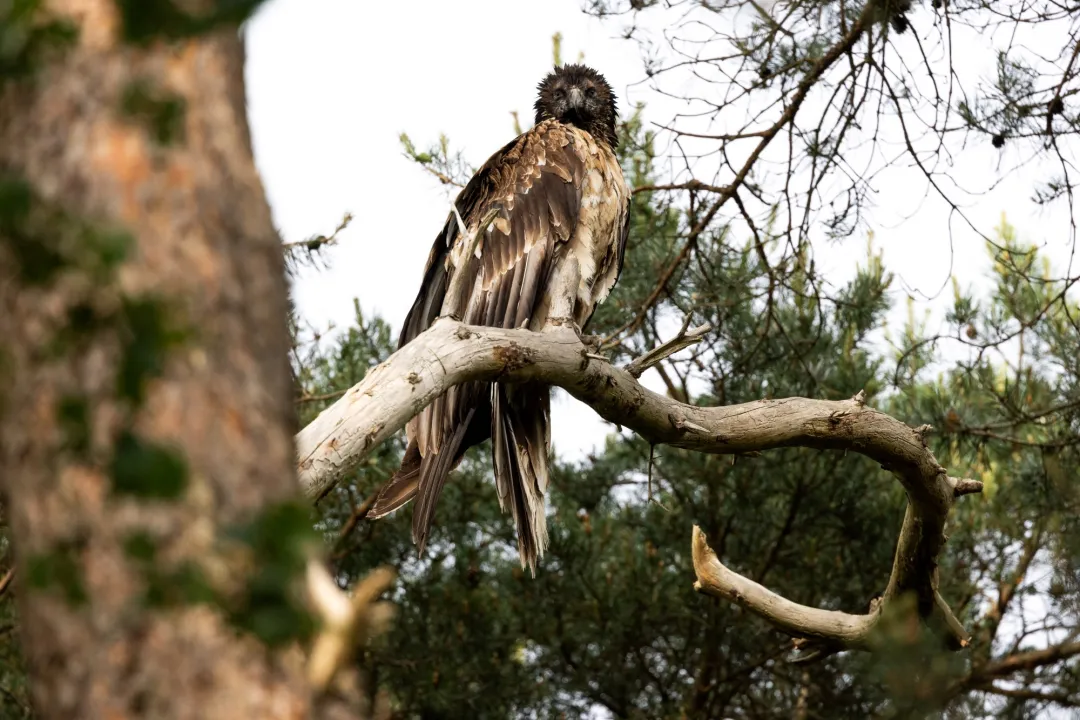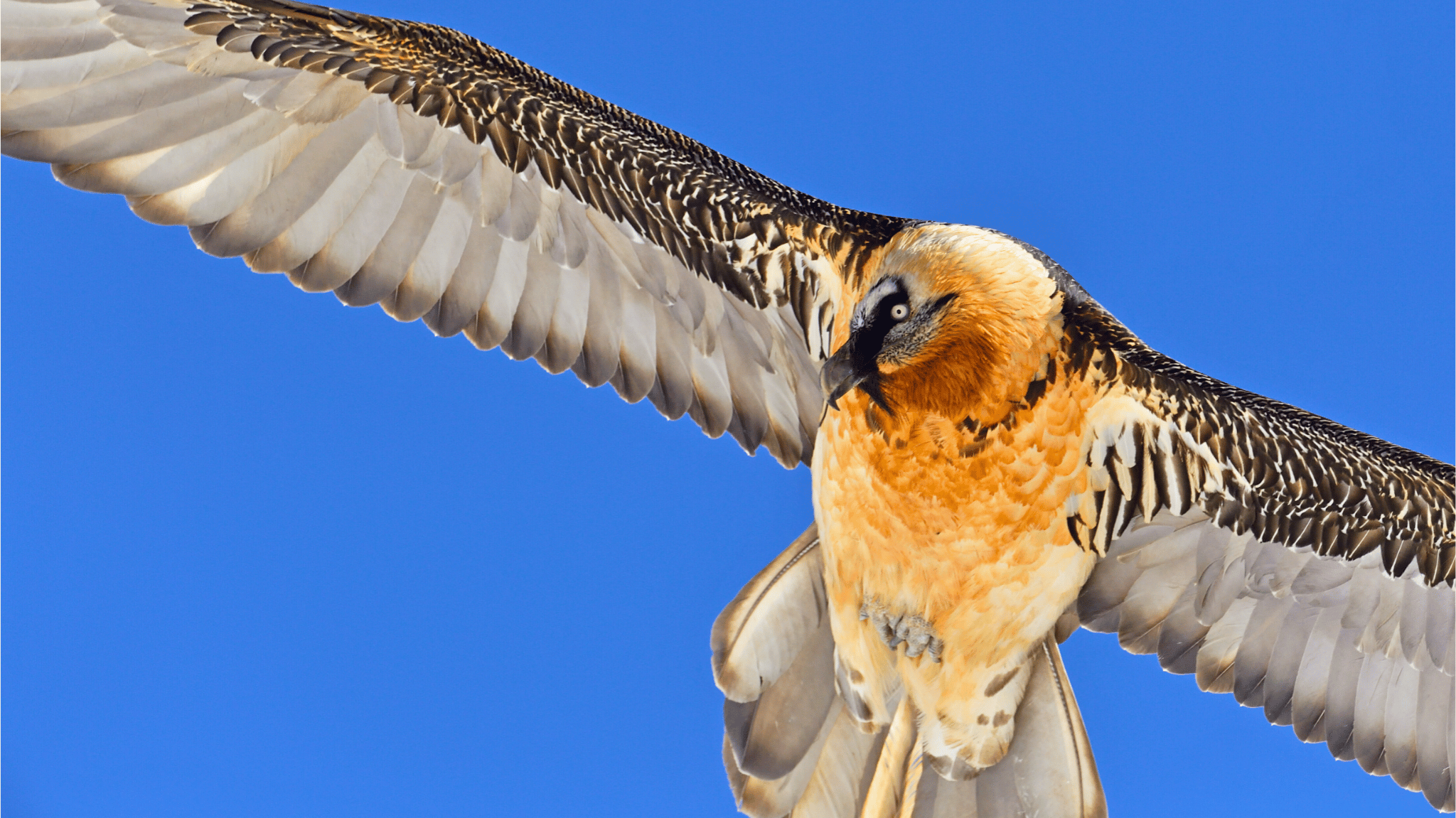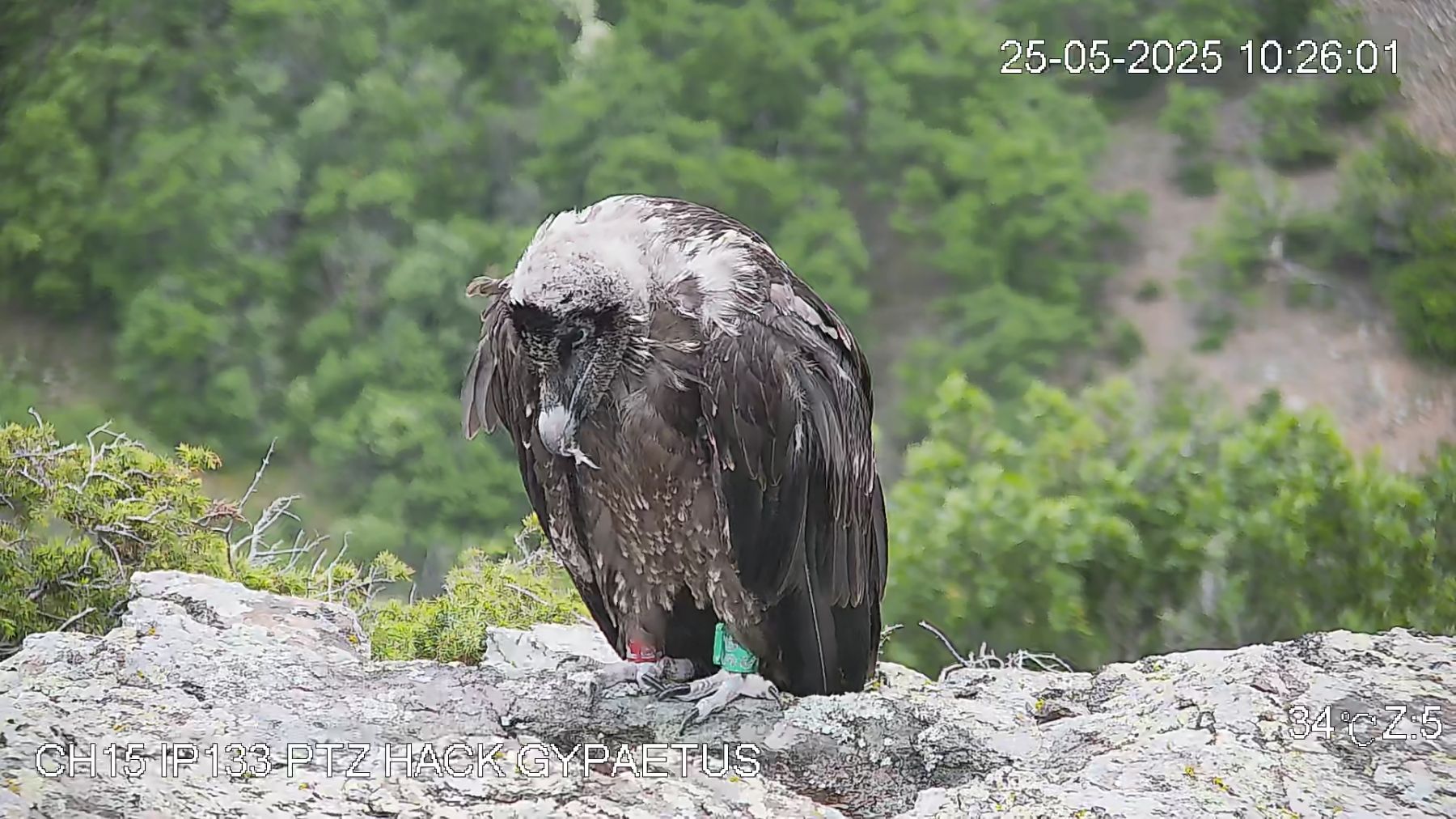
The last Bearded Vulture chick of the 2020/21 captive-breeding season hatched quite late in the season — we welcomed the chick in May, bringing the hatching period to a close. Overall, we had a fruitful captive-breeding season, which means that we have an exciting release season ahead, with the destination of chicks already determined!
Last Bearded Vulture chick arrives
On 10 April 2021, the Bearded Vulture pair at Puy du Fou welcomed their chick! It was likely that this would be the last to hatch this breeding season, within the Bearded Vulture Captive Breeding Network, coordinated by us at the Vulture Conservation Foundation (VCF) on behalf of EAZA’s EEP, which breeds the species for conservation purposes. But a pleasant surprise awaited us! On Sunday, 9 May 2021, the last chick hatched in Tallinn Zoo. The parents of the last chick are BG431, who is a founder male, and BG436, a female descendant of the old Liberec breeding pair. The first time the pair produced a clutch was back in the 2009/10 breeding season. A few years later in 2016, they welcomed their first chick! The parents are not able to rear chicks as they stop incubating after 40 to 45 days, which is not enough time. That is why eggs have to be removed before this date to get descendants. Two seasons ago, chicks were transferred by plane from Tallinn Zoo in Estonia to Richard Faust Bearded Vulture Specialised Captive Breeding Centre (RFZ) in Austria for adoption. During the last and current season, due to the COVID-19 restrictions, they have been reared with the nest box method to ensure natural rearing, enabling them to live in the wild and breed once they become sexually mature. This year, the pair laid a double-clutch, and both chicks hatched and survived — how marvellous is that!
Bearded Vulture captive-bred chicks of 2021
This breeding season, 43 laying pairs laid 65 eggs, of which 31 hatched and 26 survived. This time around, we had the formation of 10 new mating pairs, of which 7 laid eggs and 4 managed to successfully produce chicks! The breeding results conclude a great breeding season, despite the extra challenges faced this year again with the pandemic and restrictions. An achievement made possible by all the hard work of our partners and the staff that look after these incredible birds. Thanks to this outcome, and if everything goes as planned, we will release 23 captive-bred chicks into the wild as part of our five ongoing reintroduction and restocking projects across the Alps, France and Spain. Excitingly, this year, we will release two birds in Germany for the first time as part of our Alpine Bearded Vulture Reintroduction Project.
Breeding Bearded Vultures for conservation purposes
Back in 1978, the Vulture Conservation Foundation (VCF) and partners united to bring the Bearded Vulture back to the Alps. To achieve this goal, pioneers established a captive-breeding programme to produce chicks and release them into the wild, with the first release taking place in 1986 at the Austrian Hohe Tauern National Park. It took time and perseverance since Bearded Vultures only reproduce when they reach around ten years old, with one chick surviving per year. Still, thanks to these efforts, the species returned to the Alps, making it one of the best wildlife comeback stories of all times! Ever since this success, more projects were launched across France and Spain. Today, the Bearded Vulture Captive Breeding Network, coordinated by the VCF on behalf of EAZA‘s EEP, closely works with over 40 partners, including zoos, to ensure the best breeding results from the 179 birds in captivity. Every year, the VCF and partners release young captive-bred Bearded Vultures into the wild across Europe to reintroduce the species to areas where it went extinct or boost local, vulnerable populations. Up until the end of 2020, a total of 343 captive-bred Bearded Vultures were freed into the wild.
It is time for the #BeardedVultureReleaseSeason. Follow us on Facebook and Twitter to stay tuned!






